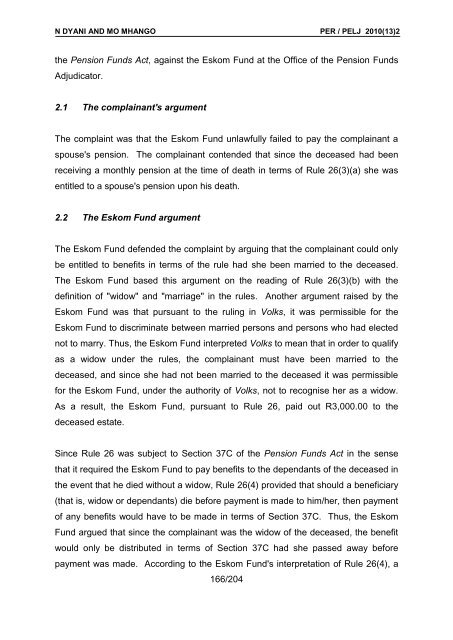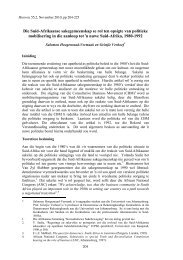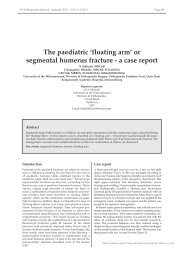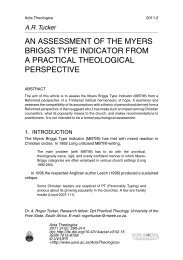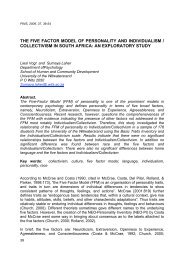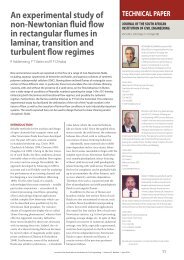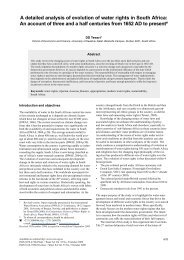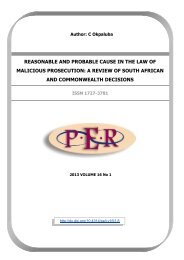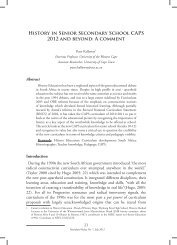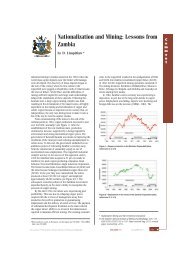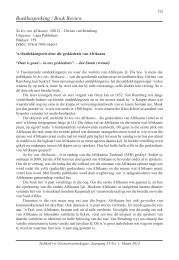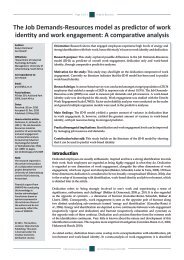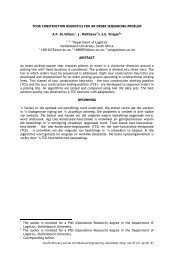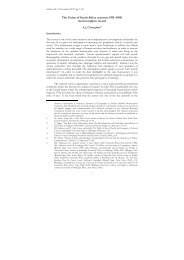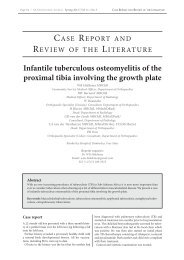how could the pension funds adjudicator get it so wrong
how could the pension funds adjudicator get it so wrong
how could the pension funds adjudicator get it so wrong
You also want an ePaper? Increase the reach of your titles
YUMPU automatically turns print PDFs into web optimized ePapers that Google loves.
N DYANI AND MO MHANGO PER / PELJ 2010(13)2<br />
<strong>the</strong> Pension Funds Act, against <strong>the</strong> Eskom Fund at <strong>the</strong> Office of <strong>the</strong> Pension Funds<br />
Adjudicator.<br />
2.1 The complainant's argument<br />
The complaint was that <strong>the</strong> Eskom Fund unlawfully failed to pay <strong>the</strong> complainant a<br />
spouse's <strong>pension</strong>. The complainant contended that since <strong>the</strong> deceased had been<br />
receiving a monthly <strong>pension</strong> at <strong>the</strong> time of death in terms of Rule 26(3)(a) she was<br />
ent<strong>it</strong>led to a spouse's <strong>pension</strong> upon his death.<br />
2.2 The Eskom Fund argument<br />
The Eskom Fund defended <strong>the</strong> complaint by arguing that <strong>the</strong> complainant <strong>could</strong> only<br />
be ent<strong>it</strong>led to benef<strong>it</strong>s in terms of <strong>the</strong> rule had she been married to <strong>the</strong> deceased.<br />
The Eskom Fund based this argument on <strong>the</strong> reading of Rule 26(3)(b) w<strong>it</strong>h <strong>the</strong><br />
defin<strong>it</strong>ion of "widow" and "marriage" in <strong>the</strong> rules. Ano<strong>the</strong>r argument raised by <strong>the</strong><br />
Eskom Fund was that pursuant to <strong>the</strong> ruling in Volks, <strong>it</strong> was permissible for <strong>the</strong><br />
Eskom Fund to discriminate between married per<strong>so</strong>ns and per<strong>so</strong>ns who had elected<br />
not to marry. Thus, <strong>the</strong> Eskom Fund interpreted Volks to mean that in order to qualify<br />
as a widow under <strong>the</strong> rules, <strong>the</strong> complainant must have been married to <strong>the</strong><br />
deceased, and since she had not been married to <strong>the</strong> deceased <strong>it</strong> was permissible<br />
for <strong>the</strong> Eskom Fund, under <strong>the</strong> author<strong>it</strong>y of Volks, not to recognise her as a widow.<br />
As a result, <strong>the</strong> Eskom Fund, pursuant to Rule 26, paid out R3,000.00 to <strong>the</strong><br />
deceased estate.<br />
Since Rule 26 was subject to Section 37C of <strong>the</strong> Pension Funds Act in <strong>the</strong> sense<br />
that <strong>it</strong> required <strong>the</strong> Eskom Fund to pay benef<strong>it</strong>s to <strong>the</strong> dependants of <strong>the</strong> deceased in<br />
<strong>the</strong> event that he died w<strong>it</strong>hout a widow, Rule 26(4) provided that should a beneficiary<br />
(that is, widow or dependants) die before payment is made to him/her, <strong>the</strong>n payment<br />
of any benef<strong>it</strong>s would have to be made in terms of Section 37C. Thus, <strong>the</strong> Eskom<br />
Fund argued that since <strong>the</strong> complainant was <strong>the</strong> widow of <strong>the</strong> deceased, <strong>the</strong> benef<strong>it</strong><br />
would only be distributed in terms of Section 37C had she passed away before<br />
payment was made. According to <strong>the</strong> Eskom Fund's interpretation of Rule 26(4), a<br />
166/204


